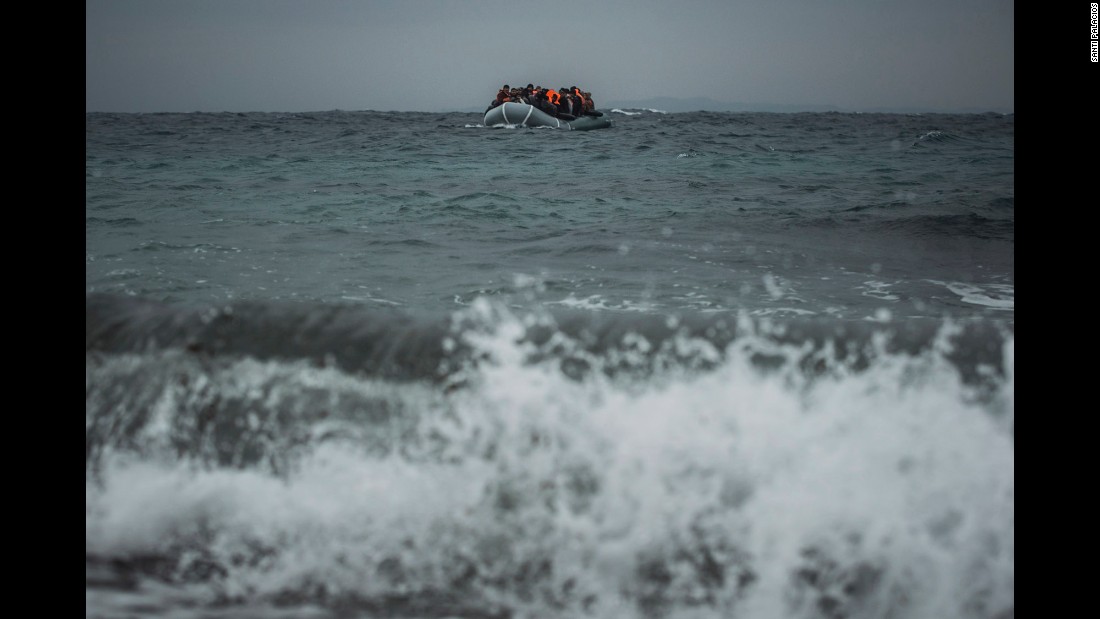CPTnet
20 September 2016
MEDITERRANEAN: Forty-four years in prison for teenage refugee caught in smuggling
web
by Peggy Gish
 He bent his head down momentarily and then raised it to
He bent his head down momentarily and then raised it to
brace himself for the verdict and the sentence. “Guilty.”
“Forty-four years in prison,” a staggering reality for a
teenage refugee, who thought he would be released because of his age and
background. All his dreams and hopes for his life, wiped away at the stroke of
the judge’s pen. His only hope now is in the appeals process, which often
results in greatly reducing the sentence.
We were stunned. After visiting him in the jail the
day before the trial, and hearing the agonizing story of his family fleeing
death threats in their home country, I felt a deep pain and grief.
His crime: human smuggling. He had driven the small dinghy
boat transporting forty other refugees from Turkey to Lesvos, Greece in order
to pay for his family’s passage and was caught by the Greek coast guards.
For six hours in the courtroom, one man after another faced
the judge. Some of the men were refugees, but most were young Turkish men
who took the job in order to get out of a personal financial crisis. Their lives are over. Our hearts
bottomed-out. Prosecutors stridently insisted that they each get the maximum
penalty for their crime, which by Greek law is a fine plus fifteen years in
prison for each person in the boat, whose life they endangered. Some of the men
got over a hundred-year sentence, but the maximum that any will serve is
twenty-five. Defense lawyers pled sincerely and compassionately for leniency
for their clients. But she remained cold toward the accused. The judge’s demeanor and the harshness of
Greek law repulsed me. Our lawyer also
felt shocked and told us she had never seen a judge in this court be so
inflexible and harsh in her rulings as today.
No one in the courtroom supported people making immense profits
from smuggling refugees in unsafe boats. It’s a horrendous crime against these
vulnerable and desperate people. But the people on trial in this courtroom were
not the people running these illegal businesses and getting rich. These were
the young, desperate men they hired or bargained with to take the legal risk of
driving the boats without understanding the potential consequences of their
actions. And so the laws and prosecutions against human smuggling are not
deterring this crime. They are not addressing the governmental regulations that
push desperate people to choose illegal and unsafe ways of reaching a safe
place to live.
One can choose to look at the men on trial through the eyes
of “law and order.” Or, one can choose to look more deeply at the injustices
that the system smoothes over and tries to hide, and at who profits from the
law. We can choose to see the humanity of these men who are the victims of our
global wars and intervention and seek to address the root causes of their
illegal activity. We can provide safe and legal passage and repatriation for
people fleeing violence, and dry up the human trafficking of refugees.
The hardest task, though, is for our societies to find and see new,
compassionate ways of living in our global world and ways of preventing these
crises.
At times like this, words I grew up hearing come back to me,
“He/she who has eyes, let them see.”



